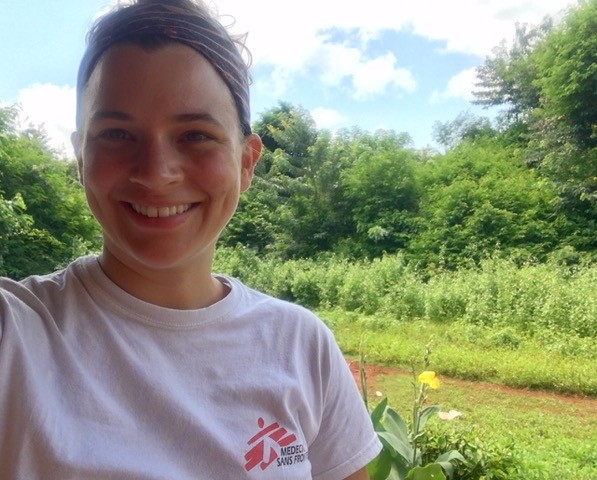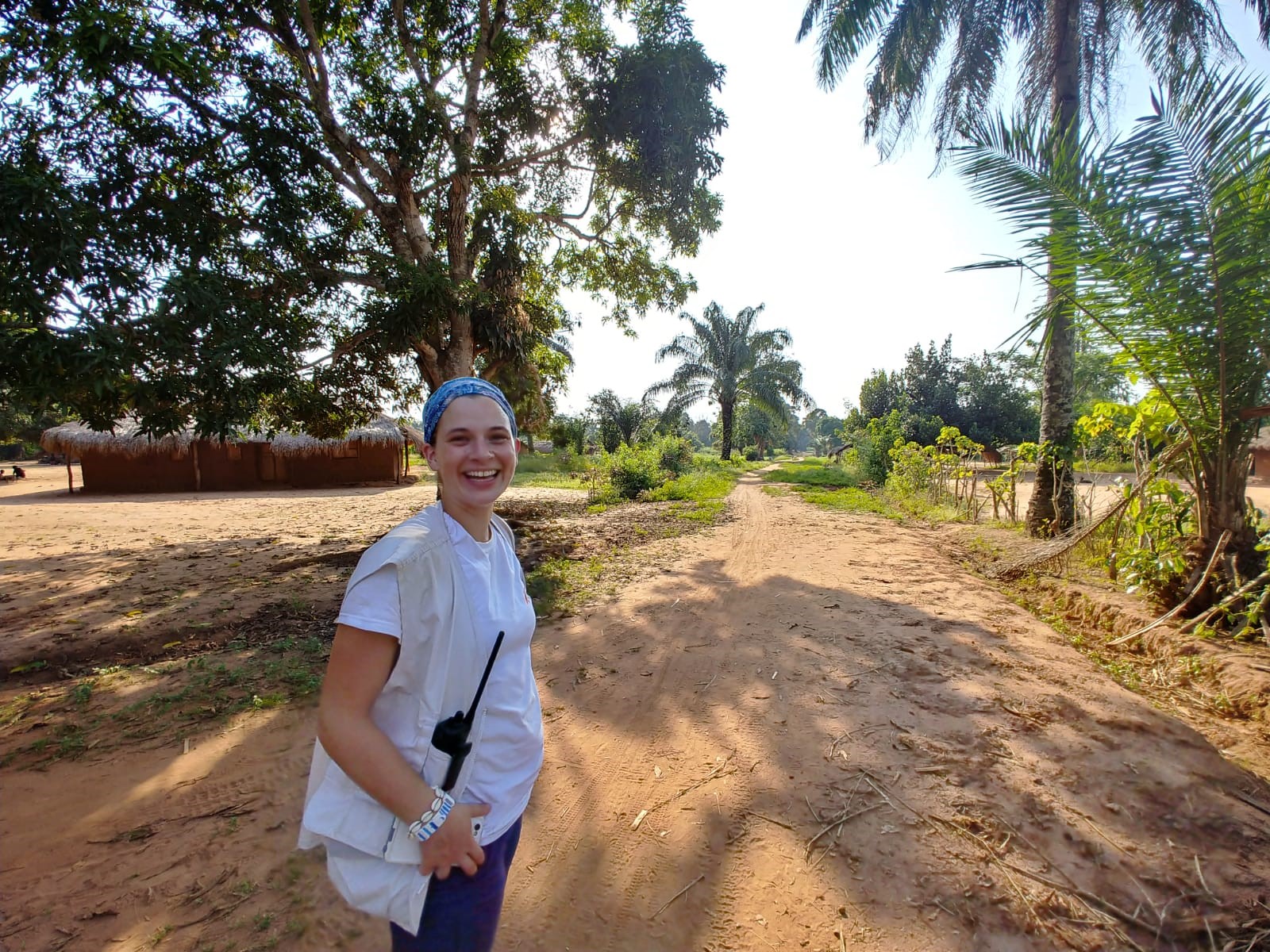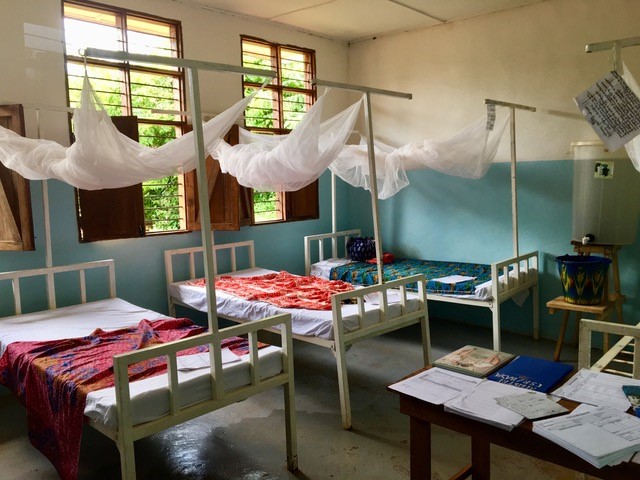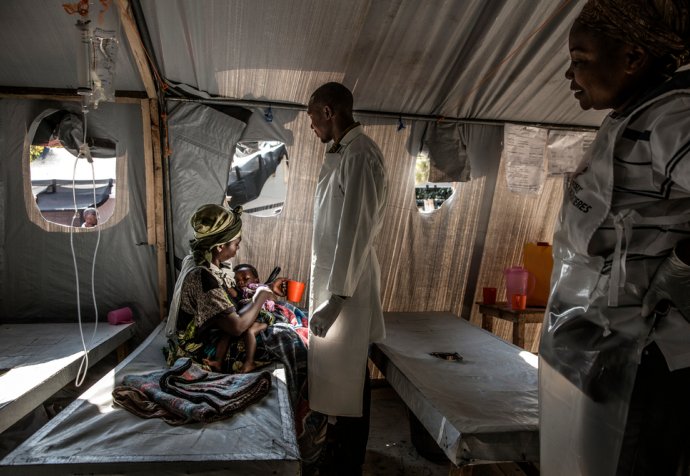“For the next six months, the town of Bili in the Nord-Ubangi province of the Democratic Republic of Congo (DRC) will be work and home for me. It’s hot and humid and I have sadly resigned myself to the fact that I will be permanently sweaty and have giant, foofy hair for the duration of the project! That said, it’s quite beautiful here, with bright red-orange earth, greenery everywhere and plenty of blue sunny skies.
MSF has been in Bili since 2015, initially to provide emergency medical assistance to an influx of refugees fleeing conflict from the Central African Republic (CAR) but has since changed to supporting the existing health infrastructure too.





